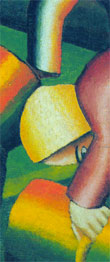|
 |
 Program of ERASMUS studies Program of ERASMUS studies |
For the ERASMUS students, the Department offers two special courses in English, one in the winter and one in the spring semester, which consist of lectures on selected topics of Greek/Southern European Ethnography and History. The students are required to choose two of the topics presented in the course and write two short essays. The courses correspond to 8 credits.
Erasmus students can, additionally, choose from the list of courses offered in Greek which form the Department's main Program of Studies. These are divided in winter-term and spring-term courses. ERASMUS students can choose only courses of the semester that correspond to the time of their participation in the Program. Students need to contact the instructor and inquire about the course and its requirements (tutorials, essays, etc). Each course corresponds to 5 credits.
Courses Offered
PA/S-065 Material Cultures and Ethnographies (Winter Semester)
CONTENT OUTLINE:
The aim of the course is to shed light on how things affect our lives, mediate in building social relations and contribute in the shaping of cultures. We will examine how things encode meanings and function as codes of communication, how they both reflect and constitute social hierarchies and power relations, how they are embedded in the construction of gender and other forms of identity. Also, by adopting phenomenological approaches, we will examine how materials participate in embodied practices and in the formation of subjectivity and personhood. Finally, we will explore the limits of materiality
-
a rather problematic and culturally biased concept. Ethnographic examples will be used throughout the course to illustrate the theoretical points presented.
COURSE UNITS:
1. Introduction to the study of things (E. Petridou)
2. Material culture, commensality and gender (E. Papataxiarchis)
3. Material culture and tourism in Greek ethnography (V. Galani-Moutafi)
4. The material culture of clothing (E. Petridou)
5. Materialities of sound (P. Panopoulos)
6. Personhood, food and efficacy of ritual: an African example (E. Tsekenis)
LEARNING OUTCOMES:
Students will develop a better understanding of the workings of things in everyday life in a variety of cultures. They will learn how to look for the stories that things can tell through ethnographic research and understand their contribution in the crafting of cultures and selves. They will also realize the cultural constraints that exist in our understanding of the relation between man and the material environment. Additionally, due to the limited number of participants, the course will provide students with the opportunity to carry out guided intensive work, and develop their skills in class discussions and oral presentations as well as essay writing.
RECOMMENDED READING:
Miller, D. (2010) Stuff, Cambridge: Polity, pp. 12-41, 42-78.
Tilley, C. (2001) “Ethnography and material culture” in P. Atkinson et al (eds) Handbook of Ethnography, London: Sage, pp. 258-271.
Warnier, J.-P. (2001)
"Α praxeological approach to subjectivation in a material world." Journal of Material Culture 6(1): 5-24.
Woodward, I. (2007) Understanding material culture, London: Sage.
PA/S-069 Greek History in European Perspective (Spring Semester)
CONTENT OUTLINE:
The course deals with specific aspects of Greek history, from medieval to contemporary times, in their interplay with major social, economic and ideological developments in the European continent. It consists of four parts, each of which concerns a different historical period:
Besides providing an introduction to Greek history to international Erasmus students, the course explores major themes of medieval and modern history which are especially relevant to contemporary concerns and debates, such as the role of religion, the formation of national identities or the shaping of urban space.
COURSE UNITS:
1. Byzantium and the Medieval European world (I. Smarnakis)
2. Greeks, Ottomans and Early Modern Europe (E. Gara)
3. Nationalism and the making of Modern Greece (H. Exertzoglou)
4. Urbanization, cities, and urban cultures in Greece, 19th-20th centuries (Y. Yannitsiotis)
LEARNING OUTCOMES:
The course objectives are to provide students with a theoretical understanding of various aspects of Greek and European history and enable them to demonstrate the ability to analyze and interpret what they have learnt, orally though class presentations and in writing through essays.
RECOMMENDED READING:
Bastea, Eleni, The Creation of Modern Athens: Planning the Myth, Cambridge: Cambridge University Press, 2000.
Blinkhorn, Martin, and Thanos Veremis (eds.), Modern Greece: Nationalism and Nationality, Athens: Sage, 1990.
Clogg, Richard, A Concise History of Greece, Cambridge: Cambridge University Press, 1992.
Gofmann, Daniel, The Ottoman Empire and Early Modern Europe, Cambridge: Cambridge University Press, 2002.
Haldon, John (ed.), The Social History of Byzantium, Malden Mass.: Wiley-Blackwell, 2009.
Hanioğlu, Sukru, A Brief History of the Ottoman Empire, Princeton: Princeton University Press, 2008.
Necipoglu, Nevra, Byzantium between the Ottomans and the Latins: Politics and Society in the Late Empire, Cambridge: Cambridge University Press, 2009.
Roudometof, Victor,
"From Rum Millet to Greek Nation: Enlightenment, Secularization, and National Identity in Ottoman Balkan Society, 1453-1821", Journal of Modern Greek Studies 16 (1998), 11-48.
|

